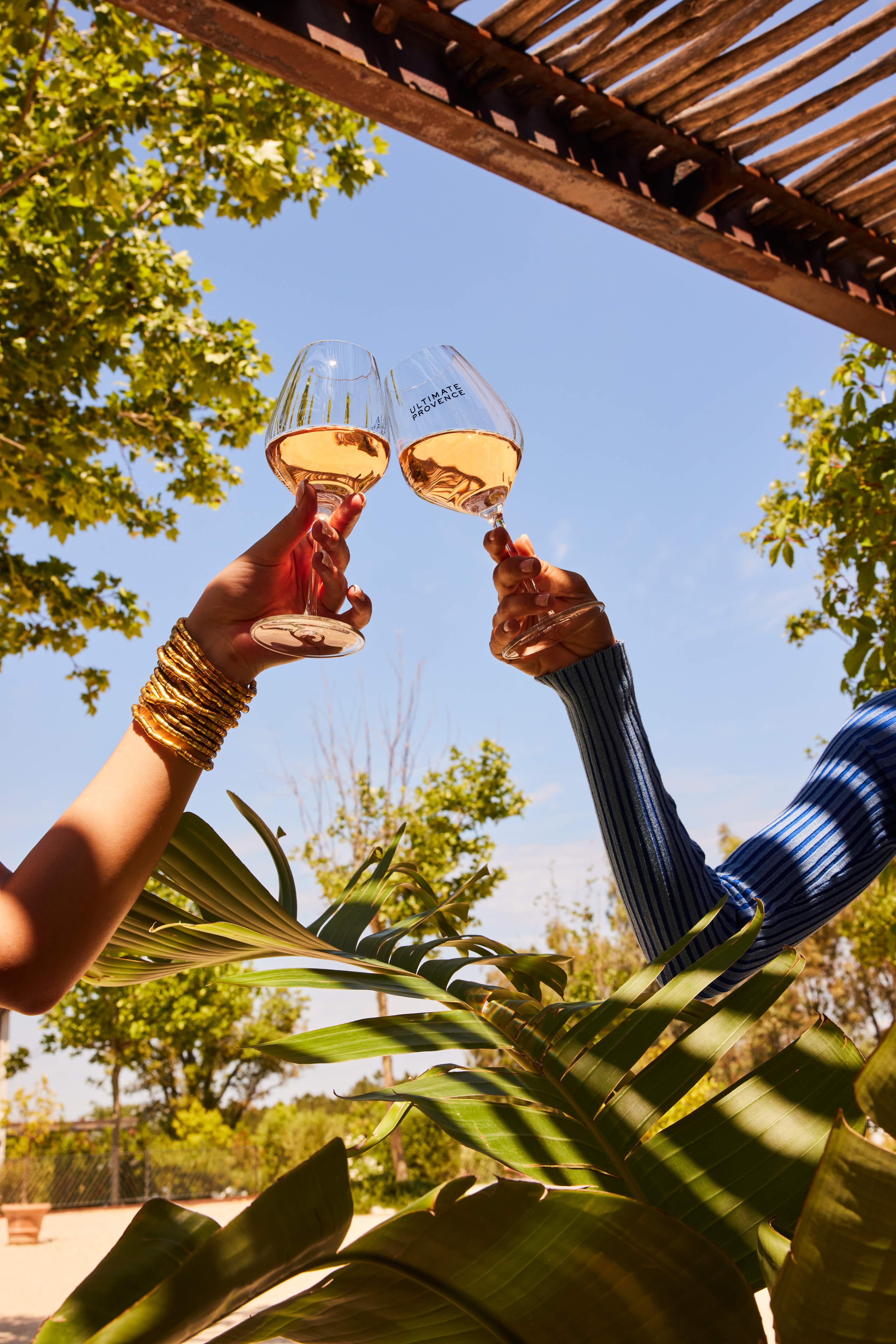The art of wine tasting requires some knowledge of winemaking, grape varieties, or even wine-growing regions. But, if knowledge is essential, you must above all be able to awaken your senses to fully appreciate the qualities of a wine. Let's see the role that each of the 5 senses plays during a tasting workshop .
Knowing how to activate your 5 senses to analyze a wine
Generally speaking, some senses are more developed than others, and are therefore easier to perceive. The goal of the sensory analysis of a wine is then to discover all the sensations perceived, the most obvious as well as the most discreet. This exercise requires a lot of training and appeals to all the senses.
Visual analysis of wine
The first sense to come into play when examining a wine is sight . As soon as the bottle of wine is opened, it is possible to observe the color of the wine . This then reveals a lot of information about the vintage that you are about to taste.
Then take the time to analyze the reflections, the color, but also the clarity , to learn more about the wine: its age, its dominant grape variety, its alcohol level... Before even putting the wine in your mouth, you will already know some of its secrets.
For an optimal visual examination , it is advisable to hold your glass facing a white background, in front of a light source. This will allow you to admire the color and reflections of the wine without hindrance. This technique is valid for red wines, white wines and rosé wines.
Auditory analysis of wine
You may be wondering how hearing plays a role in wine tasting? Certainly, it is not the sense most mobilized during this demanding exercise, unless you listen to the fine bubbles of Champagne fizzing, but your ears could well help you understand a wine.
Wine lovers agree that hearing is capable of placing wine lovers in optimal tasting conditions . From the cork popping, to the liquid poured into the glass, to the clinking of the glasses when toasting, each sound is an appetizer for a successful tasting.
The environment is essential to the analysis of a wine, because we must ensure that the taster is in the best conditions to listen to his senses . Some tasting workshops even offer a little background music to accompany the wine experience.
Olfactory analysis of wine
Let's continue the sensory experience by now observing the nose of the wine , in other words, the aromas it gives off. To understand how your sense of smell is able to perceive these odors, you need to know that wine expresses different scents when it comes into contact with the air. These aromas will evolve for a few minutes, before transforming.
For a proper tasting, you must first start by smelling the wine without shaking the glass. This is called the first nose .
Then, after having perceived the first sensations, you can begin to gently swirl the wine in the glass, to allow it to aerate and reveal its aromas more intensely. We then speak of a second nose .
Good to know: the aromas perceived by the nose are completely different from the aromas felt in the mouth. Each one gives information on the winemaking technique of the bottle tasted.
Taste analysis of wine
We finally arrive at the first sip of wine , which will allow for a careful taste examination . Here again, certain techniques are recommended to perceive all the diversity of sensations and flavors.
Knowledgeable oenologists therefore advise keeping the wine in your mouth for a few moments before swallowing or spitting it out, to ensure that it travels through all the taste buds in your mouth. Then, some will recommend that you chew it, others will prefer to grub it. It's up to you to discover the technique that suits you best.
Analysis in the mouth then makes it possible to determine the flavors of the wine , but also its acidity or its alcohol content. This information will be of great help in learning to recognize a wine, a wine-growing region, a grape variety, a manufacturing method, etc.
Good to know: certain sensations may persist in the mouth. During a tasting, it is therefore recommended to rinse your mouth between two vintages.
Tactile analysis of wine
Touch seems to be a sense that we use even less than hearing when tasting red wines, white wines or rosé wines. However, in our case, when we talk about touch, we are talking about the physical sensation of the wine in the mouth . This may then concern its temperature or its texture . Depending on the tannin content, for example, a wine can be more or less dense, with a more or less pronounced feeling of dryness.
With a little practice, you will be able to describe a wine as nervous, rough, structured, tender...
The importance of each sense when tasting a wine
Wine tasting is truly a sensory experience . Nothing should be left to chance, because each sense has valuable information to provide you. And while you can learn a lot about the wine you taste, the senses also contribute greatly to the quality of the experience. Indeed, a good tasting takes place in a calm environment, without odor, with controlled lighting and a comfortable setting.
The tasting workshop is an ideal gift for all wine lovers, because it allows you to discover the importance of each sense. Visit the cellars of the Berne estate for an incredible wine experience.











